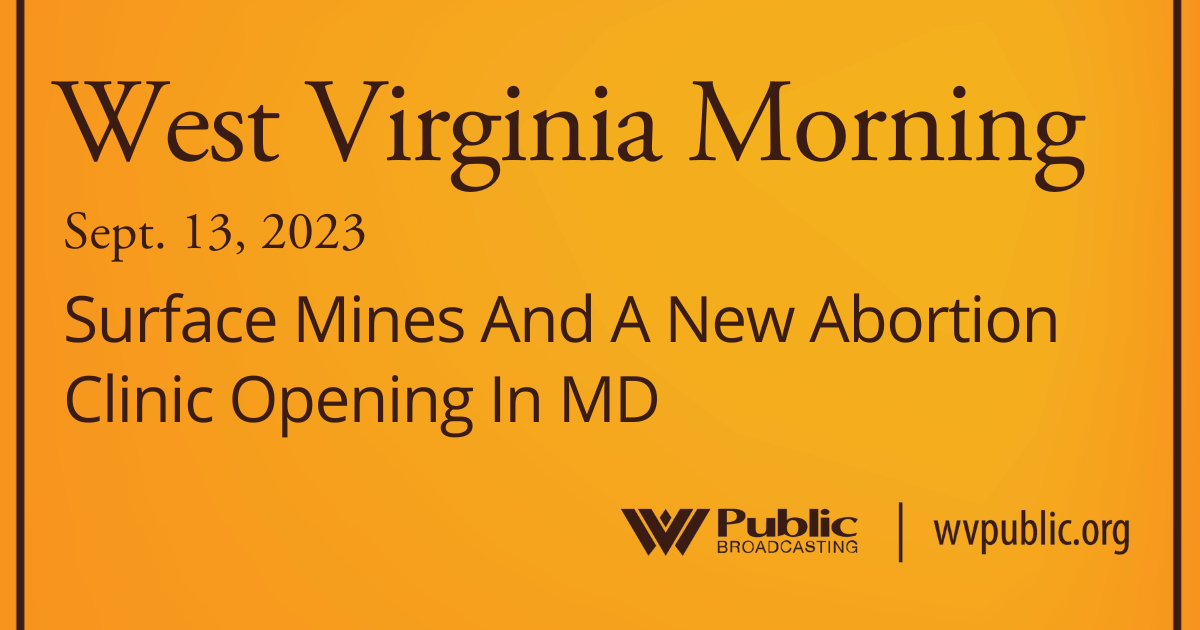A new abortion provider is opening this year in Democratic-controlled Maryland — just across from deeply conservative West Virginia, where state lawmakers recently passed a near-total abortion ban.
A new abortion provider is opening this year in Democratic-controlled Maryland — just across from deeply conservative West Virginia, where state lawmakers recently passed a near-total abortion ban.
The Women’s Health Center of Maryland in Cumberland, roughly 5 miles (8 kilometers) from West Virginia, will open its doors in June — a year after the U.S. Supreme Court overturned federal abortion protections — to provide abortions to patients across central Appalachia, a region clinic operators say is an “abortion desert.”
“Hours in any direction, there are no other abortion providers here — it’s smack dab in the middle of an absolute abortion desert, and that’s by design,” said Katie Quiñonez, executive director of the Charleston-based Women’s Health Center of West Virginia, the state’s lone abortion clinic until it was forced to stop the procedures after legislators in September passed a ban with narrow exemptions.
The Cumberland clinic will be the only independent reproductive health care center in the area and the western-most provider of surgical and medical abortion and gender-affirming hormone therapy in Maryland. Quiñonez, who will also serve as the Maryland clinic’s executive director, said the facility will be a more accessible option for patients in northern West Virginia, western Maryland, south central Pennsylvania and Ohio, where an abortion ban is under injunction.
Independent abortion clinics provide most abortions in the U.S. — especially for people with low-incomes who live in isolated, rural states hostile to abortion access. The clinics are more likely to offer abortion after the first trimester and to provide both surgical and medication abortion options, according to the Abortion Care Network, the national association for independent abortion care providers.
Dozens of independent clinics across the country have been forced to close their doors since the U.S. Supreme Court overturned Roe v. Wade, and in 14 states, there are no abortion clinics at all.
At least 66 clinics in 15 states have stopped providing abortions since the decision, according the Guttmacher Institute, a research group that supports abortion rights. The number of clinics providing abortions in those 15 states dropped from 79 to 13 by October of last year, with the remaining clinics in Georgia.
When West Virginia lawmakers passed their sweeping abortion ban, several members of the Republican majority said they hoped it would force the Women’s Health Center of West Virginia to shut down. Republican Sen. Robert Karnes said he believed shuttering the center was “going to save a lot of babies.” Brandon Steele, a Republican in the state’s House of Delegates, called abortion access “a scar” and “a curse” lawmakers had to “remove from this land.”
West Virginia patients seeking an abortion now have to take time off work, travel hundreds of miles and pay for lodging and other accommodations, “all to get basic health care,” Quiñonez said.
“Our communities deserve better — people should be able to access abortion care without delay or barriers,” she said.
The Women’s Health Center of Maryland will provide abortion services into the second trimester and will accept Maryland Medicaid, which covers abortion. It will also offer annual exams, contraception, testing and treatment for sexually-transmitted diseases, as well as breast and cervical cancer screenings.
Although no abortions can be provided there, West Virginia’s clinic is still open and offers other reproductive health care and hard-to-find services, like gender-affirming hormone therapy. But Quiñonez said they still get calls from anxious patients who don’t know where to go for an abortion. Until the Maryland clinic opens and can take referrals, her staff has no other option but to send callers to a website to find out-of-state services.
Since January 2022, the clinic’s abortion fund has distributed $150,000 for more than 800 people, mostly West Virginia residents.
Maryland has a Democratic governor and a Democratic-controlled General Assembly that has shown commitment to preserving abortion access. Abortion is legal in Maryland until about 24 weeks into pregnancy.
The nearest independent reproductive health clinic to Cumberland that provides abortion and gender-affirming hormone therapy is a Planned Parenthood 90 miles (145 kilometers) away in Frederick. That facility provides medication abortion only.
A closer clinic in Hagerstown is open for abortions during limited hours a few times a month. It provides first-trimester abortions only and doesn’t accept Maryland Medicaid — a barrier to low-income patients, Quiñonez said. Otherwise, patients must travel more than 100 miles (161 kilometers) to Pittsburgh or even further, to Baltimore or Washington, D.C.
Renovations started last week on the Cumberland clinic — crews were installing new medical equipment and signage, deep cleaning, applying fresh paint, replacing floors and patching drywall.
The cost for the facility, licensing and renovations is roughly $1.17 million. First-year operating costs — to include payroll, building operations — are projected to be around $763,000. Both the West Virginia and Maryland clinics are funded by donations, foundations and organizations in support of expanding abortion access in the U.S.
The Women’s Health Center of Maryland will have its own finances and, eventually, state-based board of directors. The Women’s Health Center of West Virginia’s directors will act as the board while the organization recruits new, locally-based members.
“Folks have always needed abortions — since the beginning of time,” Quiñonez said. “And they will always need abortions until the end of time. We are going to keep fighting to get every patient the care they need.”
